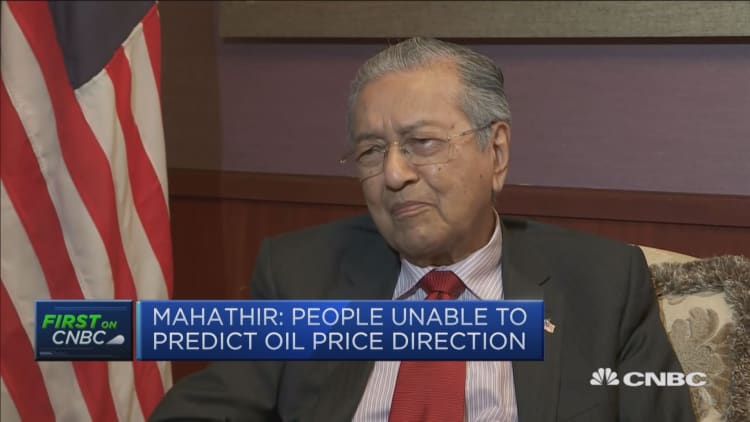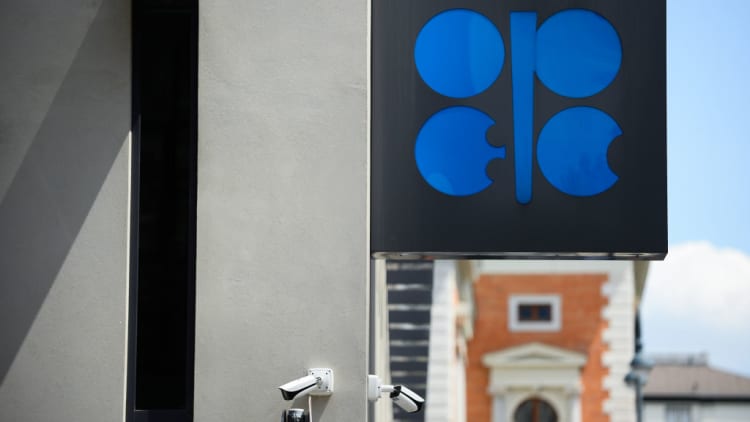
The Organization of the Petroleum Exporting Countries hasn't been effective in stabilizing oil prices, which have been more dependent on U.S. shale production than the actions of the intergovernmental group, said Malaysian Prime Minister Mahathir Mohamad.
"OPEC is not effective. They are always at loggerheads with each other so they cannot make decision," Mahathir told CNBC's Sri Jegarajah in a Monday interview. The Malaysian leader was asked whether the group should take further action to stabilize oil prices.
"What is more important is the production of shale oil from America," he added.
Those comments by the Malaysian leader came less than a month before OPEC and non-OPEC members are scheduled to meet in Vienna, Austria to vote on their next policy decision. Those major oil producers began cutting production in January 2017 to drain a global crude glut that sent oil prices from over $100 per barrel to under $30.
Oil prices did recover, but trade tensions between the U.S. and China, rising interest rates and currency weakness in emerging markets have raised concerns about a slowdown in global economic growth and oil demand.

Malaysia is an oil producing country. Consequently, analysts at Fitch recently said a decline in oil prices will undermine the country's effort to cut its debt given its dependence oil revenue. But Mahathir said Malaysia's economy is more diversified than what's commonly thought.
"We're not dependent on oil revenue. You see, we're a small producer of oil, 600,000 barrels a day — nothing compared to countries like Saudi, which is entirely dependent upon oil revenue," said the prime minister.
"We have other sources of revenue: We produce a lot of palm oil, which used to fetch quite good prices. We also have 82 percent of our exports made up of manufactured goods, so how can you say we're dependent upon oil revenue? It's not," he added.
The comments by Fitch analysts were made after Malaysia said earlier this month it plans to cut its fiscal shortfall to 3.4 percent of gross domestic product in 2019 — down from the projected 3.7 percent this year. Fitch said the country is "at the mercy of the markets" given its oil businesses, and because of that, the agency is "cautious" that Malaysia would achieve its goal in cutting the budget deficit.
Despite that, economists said Malaysia doesn't face threats of a sovereign rating downgrade in the near term.
"We don't think the situation today is that worse and entails a rating downgrade, although signals of worsening public finances have had rating agencies sounding alarms days ahead of the budget," Prakash Sakpal, Asia economist at ING, wrote in a report last week.
— CNBC's Tom DiChristopher contributed to this report.
Correction: This article has been modified to accurately reflect Malaysia's daily oil production.


